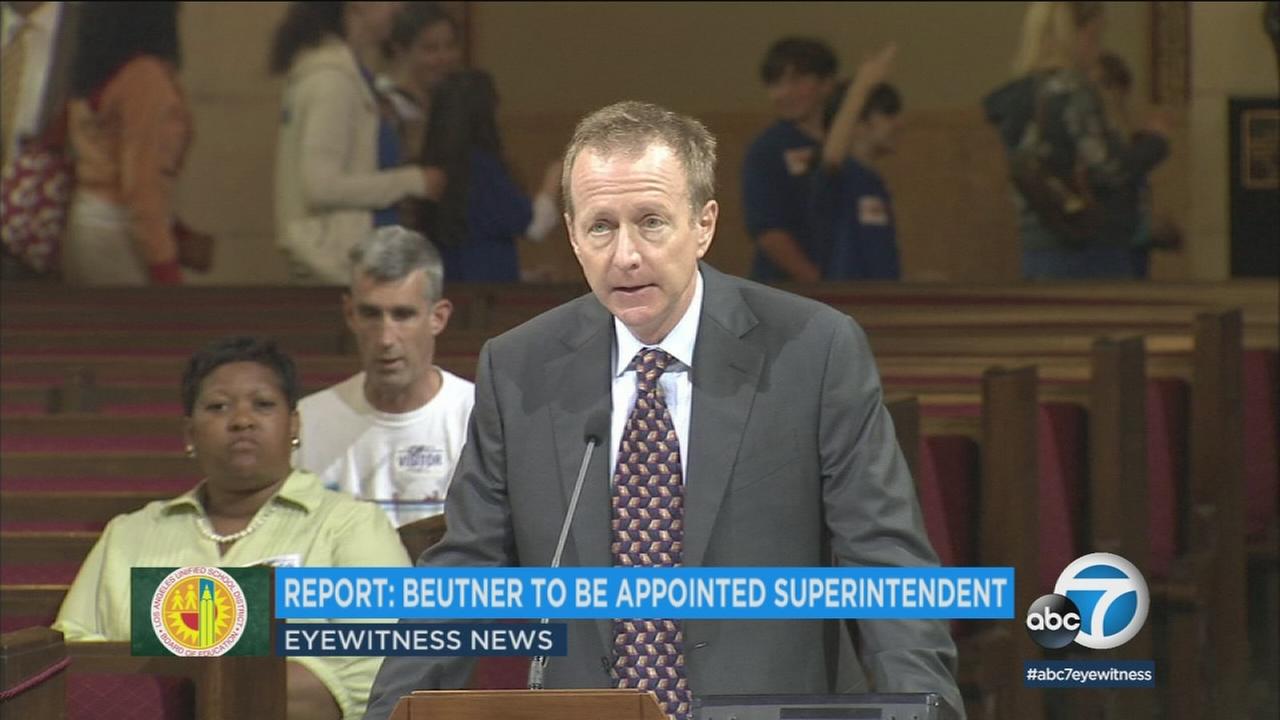Echoing the classic Clarence Thomas line about being the victim of a high-tech lynching, President Donald Trump tweeted that the Democrats’ impeachment inquiry is a lynching. Clearly the president is in need of a serious history lesson.
Billionaires Who Promise to Save Journalism and Then Default: It Ought To Be a Crime.

Let’s talk about fraud: “a person or thing intended to deceive others, typically by unjustifiably claiming or being credited with accomplishments or qualities,” the dictionary calls it.
Let’s also discuss breach of contract. “A breach of contract occurs when the promise of the contract is not kept, because one party has failed to fulfill their agreed-upon obligations, according to the terms of the contract. Breaching can occur when one party fails to deliver in the appropriate time frame, does not meet the terms of the agreement, or fails to perform at all,” says a random legal website I googled. Sounds right.
Pierre Omidyar cofounded eBay. He became a billionaire at age 31 when eBay went public. Forbes says he’s now worth $12.8 billion.
As you know, journalism is in trouble. So it sounded almost too good to be true when Omidyar lured Glenn Greenwald, who famously received the Edward Snowden stash of secret documents that proved the U.S. government is spying on us, away from the UK Guardian in order to helm a new, fearless, left-leaning journalism organization by the name of First Look Media.
Best of all, Omidyar promised to fix the biggest problem faced by 21st century journalists: shrinking budgets. First Look Media, Omidyar said, would get a whopping $250 million in order to support “independent journalists in a way that leverages their work to the greatest extent possible, all in support of the public interest.”
Geld macht frei.
Watch this crazy announcement video from 2013. No, really, watch.
First Look Media, Omidyar promises in his video, would feature a “flagship” online magazine—The Intercept, edited by Greenwald—that would “cover news and stories from entertainment and sports to politics and business.” In addition, he pledged, there would be “a family of digital magazines.” (Spoiler: the sports, business and entertainment stuff never materialized.)
One of First Look’s “verticals,” in publishing vernacular, was to be called Racket, “a hard-hitting, satirical magazine in the style of the old Spy” to be edited by Matt Taibbi of Rolling Stone. (Disclosure: I met with Taibbi to discuss the possibility of working for him. Another disclosure: I talked to a reporter at The Intercept about covering my lawsuit against the Los Angeles Times. He was excited but went cold after he pitched it to his editors.)
According to Taibbi and also Greenwald, Taibbi chafed under Omidyar’s incessant micromanaging on everything from whom he could hire to where they would sit. Taibbi quit and returned to Rolling Stone. That was the end of Racket.
Then the fickle billionaire pulled the plug on his other playthings. “Omidyar made clear that there were no plans to launch any more digital magazines in the near term,” Greenwald wrote in 2014. First Look did pick up the cartoon site The Nib in 2016 and added the nonfiction storytelling publication Topic in 2017, only to cancel both and fire their staffs as part of “cost-cutting moves” in 2019.
Omidyar did not explain why an organization backed by a man worth $12.8 billion needs to cut costs, nor how he reconciles his fickleness with that I’ve-got-your-back video. Really, watch it! (To put this in terms a normal person can understand, if you’re worth $500,000, Omidyar’s $250 million pledge is equivalent to $9,000. If you have $500,000 and you can’t spare $9,000 you’re doing something wrong.)
Earlier this year, Omidyar decided to shut down First Look’s maintenance of the Snowden archive. Given that that trove was the company’s original raison d’être, alongside its dedication to investigative journalism, it left loyalists like First Look cofounder Laura Poitras scratching their heads. In March the company laid off its team of researchers.
The point of First Look, remember, was to give good reporters plenty of cash so they could focus on writing and research.
According to Columbia Journalism Review Omidyar has made good on just $90 million of his $250 million commitment. Which is still a lot of money, but it won’t last forever when you’re burning up cash paying exorbitant wages to editors like Greenwald. He collected $1.6 million between 2014 and 2017 while entry-level grunts are making do with $55,000 in a Manhattan where one-bedroom apartments go for $3,500 a month.
Left-leaning journalism types have been whispering about the shenanigans at First Look for years. But few are willing to speak out in public. Omidyar is powerful and wealthy. What if you might want to work for him someday?
Billionaires are purchasing social good will in the hope that they will be “credited with the accomplishments or qualities” of contributing to the “public good,” as Omidyar says in his over-the-top video.
And I’m fine with that—as long as they don’t breach their contract with the public. Omidyar promised us a passel of verticals/online magazines. Where are they? He promised journalists virtually unlimited freedom to investigate, travel, whatever it takes to do their jobs. Budget cuts and mass layoffs are a clear violation of that pledge. He cheated us. He should be held accountable.
Dr. Pat Soon-Shiong is another billionaire, this one from biotech, who has burnished his image as a savior of American journalism by purchasing The Los Angeles Times, the nation’s fourth-largest newspaper. Soon-Shiong is purportedly worth $7.1 billion.
But there’s already a stink, and I’m not talking about the smell of jet fuel raining down on the Times’ new low-budget office building in El Segundo, directly under the flight approach to LAX. The Times previous home was an art deco gem downtown on Times-Mirror Square. Why, one wonders, can’t a man worth $7.1 billion shell out the $50 million-ish cost of a downtown office building rather than move reporters a three-hour drive away from some parts of the city they’re supposed to be covering? (That’s $3,500 for someone worth $500,000.) Why do so many of his new hires skew so young, Millennial and thus so cheaply five-digit?
Despite slavishly sucking up to him in public statements, the union representing Times employees has been rewarded with contempt by Soon-Shiong, who refuses to negotiate in good faith.
Jeff Bezos, self-proclaimed savior of The Washington Post, has a similar attitude toward workers at his newspaper.
I don’t have a problem with derps derping, even when they’re running major news outlets. What seriously pisses me off is when those derps are billionaires who market themselves as saviors to be admired, when they’re anything but.
(Ted Rall (Twitter: @tedrall), the political cartoonist, columnist and graphic novelist, is the author of “Francis: The People’s Pope.” You can support Ted’s hard-hitting political cartoons and columns and see his work first by sponsoring his work on Patreon.)
SYNDICATED COLUMN: Austin Beutner: L.A.’s Creepy New School Superintendent Keeps Failing Up, Leaving Destruction in His Wake

The Los Angeles Unified School District faces big problems. Magnet schools and second language programs have failed to slow declining enrollment; each of the 12,000 kids who pulls out this year means less state funding. The sprawling bureaucracy seems unable or unwilling to respond to chronic bullying centered in the elementary schools. L.A. United is in the peculiar position of raising its budget — most recently to $7.5 billion — while still having to cut back support personnel.
L.A. Unified requires strong, decisive leadership by an education expert in it for the long haul. The last thing the district and its 640,000 students need is a narcissist dilettante with one agenda: prettying up his resume. But that’s what it’s getting in the form of Austin Buetner.
The shadowy 58-year-old hedge fund billionaire and philanthropist, a self-declared political nonpartisan (but Bill Clinton ally) who began accruing his fortune making shady investments amid the ashes of the collapsed Soviet Union under Boris Yeltsin and co-founded the shady boutique investment and consulting company Evercore Partners, recently got the nod from the school board to take charge of L.A. United’s nearly one thousand schools as superintendent. Scratch the thin surface of Beutner’s resume, however, and what you find is a Hillary Clinton-like predilection for failing upward.
“Cynics might look at Beutner’s conquest of Los Angeles — the fastest takeover of a major global city since the Visigoths sacked Rome — and suggest that Southern California’s institutions must be awfully weak to keep seeking the services of the same finance guy,” Joe Mathews sardonically observed in The San Francisco Chronicle. “They might question why he keeps getting jobs while only staying in previous ones for a short time (a year or so) and without producing a record of sustained success.”
Beutner’s first major foray into public service was as deputy mayor, but he only lasted a year at City Hall. He quit to run for mayor, but gave that up when it became clear that his candidacy had fewer takers than New Coke.
In 2014 Beutner, who had no journalistic experience and as far as we know has never even delivered a newspaper, was named publisher of The Los Angeles Times, following more than a decade of brutal budget cuts, declining circulation and diminishing relevancy. No one but the man himself knows why he wanted the job; Southland political observers theorized that he wanted to leverage the editorial page to run for mayor again or perhaps for California governor. To be fair, no one man could have fixed what ailed the Times after its long gutting — but if such a miraculous creature existed, it wasn’t Austin Beutner.
The problem as always for Beutner is that while he knows how to slap backs and twist arms in the toniest corridors of power, he has no natural political constituency amid the electorate. He “lacks…name recognition,” the Times drily reported during Beutner’s aborted 2011 mayoral run.
Disclosure: Violating journalism’s traditional wall between the editorial and business sides of the operation, Beutner fired me as the newspaper’s editorial cartoonist as a favor to his biggest political ally, LAPD Chief Charlie Beck, because I had made fun of the cops. Overeager to please the fuzz, he even published a pair of articles about me that pretty much defined the word libel. I’m suing him and the Times for defamation and wrongful termination.
Beutner’s dealings with the LAPD, whose pension fund purchased substantial shares of the Times’ parent company during the short Beutner era, may be one of many moving parts of what school board member Scott Schmerelson, who voted against Beutner for the superintendent post, was referencing when he complained that the board majority failed “to exercise due diligence regarding Mr. Beutner’s lengthy and tangled business affairs.” Quoting Schmerelson, the Times lazily allowed: “Schmerelson did not cite an example, but Beutner, who is wealthy, has wide-ranging investments and a complex business background.”
To say the least.
Just over a year after taking the helm at Times Mirror Square, Beutner brazenly attempted a failed boardroom coup to seize both the Times and the San Diego Union-Tribune from the clutches of the Chicago-based Tribune Publishing (now known as Tronc). The Tribbies were so appalled that they ordered him unceremoniously removed with his banker’s box full of office supplies, turning off his Times email account so he had to send his farewell via Facebook.
Now this creepy dude is running the schools. Which prompts a few questions.
Beutner is loaded. He doesn’t need the job. Why does he want it? (Although he’s apparently not so much of a billionaire that he turned down the job’s $350,000-a-year paycheck.)
Will he last more than a year this time?
Will there be parent-political blowback from the, to be charitable, less than transparent way that he won the support of the school board over Vivian Ekchian, the incumbent interim superintendent and career educator?
Asked the first question, Beutner responded, as he often does, with a stream of pablum: “It’s about the kids. My own roots, my mom was a teacher, my dad worked very, very hard to make sure that I had a great public education. It’s that common place — it’s the community place, the commonplace, the community connects. And if we can provide students that same opportunity I had with a great public education, what a gift, what an honor to be able to work towards that.”
In other words, who knows what Austin wants? The most obvious answer is that Beutner is a wannabe political animal who recognizes his biggest political problem: no one knows who he is. Being perceived as having turned around the schools might be leveraged into a mayoral or even gubernatorial run. Perhaps he’ll want to connect his business allies to lucrative contracts supplying the district; if so, he would merely be following up such fiascoes as the district’s 2013 plan to issue iPads to every student, which devolved into scandal. Beutner is a proponent of charter schools, but he faces a dilemma there: every student who transfers to a charter school takes away more revenue from the traditional institutions.
The Beutner-aligned Southern California media universe isn’t spilling much ink on the aftermath of the Ekchian snub. But a lot of parents, not to mention women reveling in the #MeToo movement, felt rubbed the wrong way by the appointment of a rich white male educational neophyte over a woman with 32 years of experience working within L.A. Unified, where she began as a teacher assistant.
“The man you’re about to choose has no history of success anywhere,” warned ex-school board president Jeff Horton. “What that says to all of the educators that you depend on to deliver your product is, ‘We don’t really care whether a person knows about education. We have other criteria — which are connected with our donors and our backers.’” The majority in the 5-2 vote received a total of $15 million in donations from the charter lobby.
One thing is certain: even for a miracle worker, it will take a lot longer than Beutner’s usual year-long tenure to demonstrate significant improvement in the district. Times columnist Steve Lopez lists the issues: “Falling enrollment, rising pension and healthcare costs, academic struggles, billions in deferred building maintenance at hundreds of schools, political division on the board and an ongoing philosophical difference between charter school supporters and those who believe they are draining traditional schools staffed by union teachers.”
Here’s the rub: even if Beutner somehow manages to make a dent in L.A. Unified’s longstanding problems, there’s no metric in place to judge success that everyone agrees upon. Knowing Beutner — as you can imagine, I’ve studied him closely — I’d lay better-than-even odds that, as ever in search of a quick score to pump up his political prospects, he’ll throw up his hands and walk away again before long.
(Ted Rall (Twitter: @tedrall), the political cartoonist, columnist and graphic novelist, is the author of “Francis: The People’s Pope.” You can support Ted’s hard-hitting political cartoons and columns and see his work first by sponsoring his work on Patreon.)


